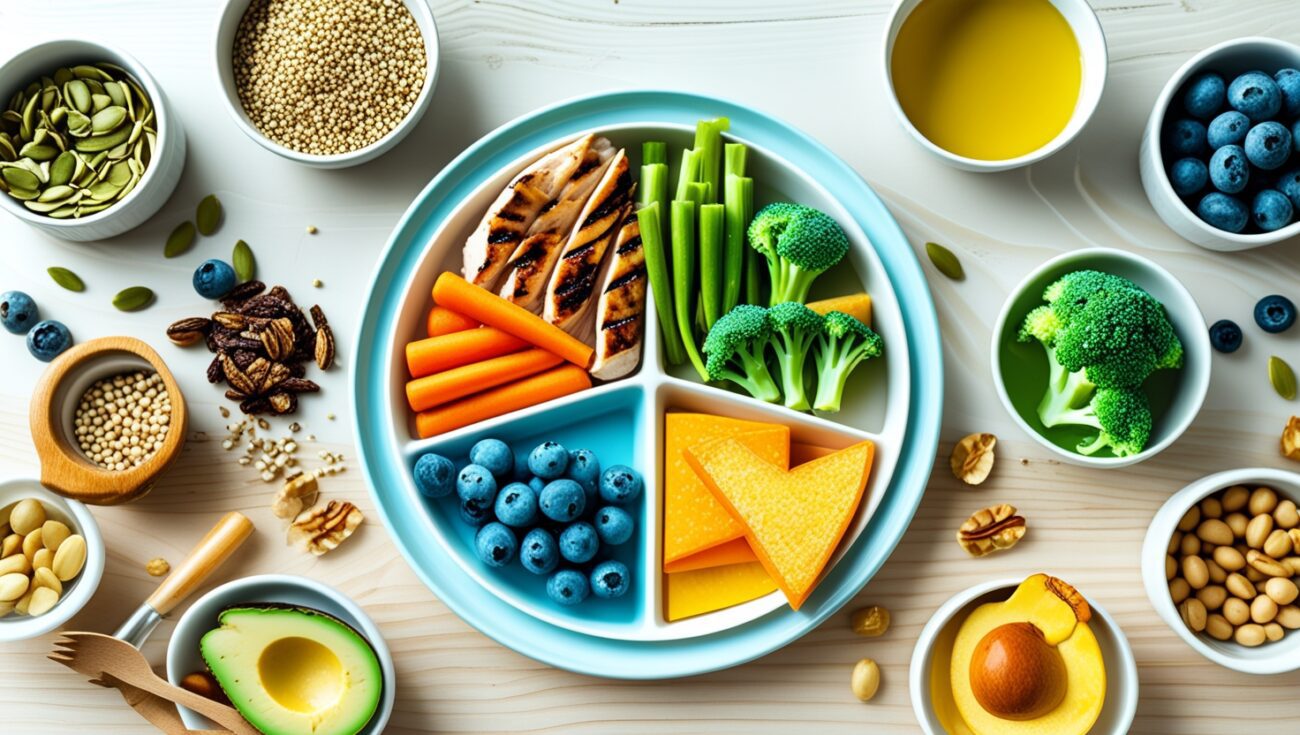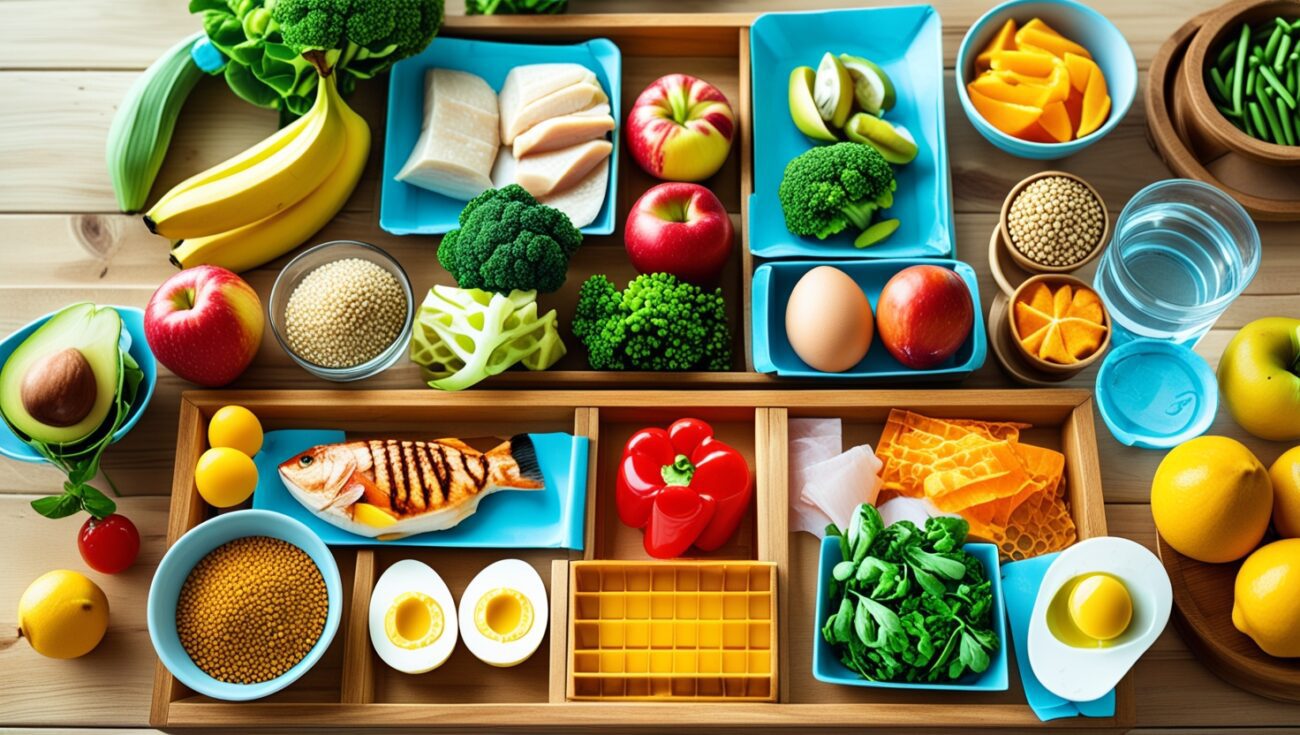Feeding
22
Feb
How to Manage Nutrition During Teething
Teething can be a challenging phase for both babies and parents. The discomfort from sore gums can affect your baby’s eating habits, making it important to focus on the right nutrition to ensure they continue to grow and stay healthy. In this article, we will explore some essential tips for managing nutrition during this time.
1. Offer Soft, Cool Foods
Teething babies often prefer softer, cooler foods that are gentle on their gums. Cold foods can help numb the discomfort, making them more appealing and easier to consume.
- Cold Pureed Fruits: Pureed fruits like apples, pears, or peaches chilled in the fridge.
- Chilled Yogurt: Unsweetened yogurt can soothe sore gums while offering protein and calcium.
- Frozen Veggies: Soft, steamed vegetables like carrots or peas frozen into small chunks.
- Chilled Teething Rings: A safe option for babies to...
21
Feb
How Nutrition Impacts Children’s Mental Growth
Proper nutrition plays a vital role in a child's mental development. The brain, like the rest of the body, requires a variety of nutrients to function optimally, develop effectively, and support cognitive functions such as memory, concentration, and problem-solving skills. A well-balanced diet can significantly enhance learning abilities, emotional regulation, and overall brain health. In this article, we will explore key ways in which nutrition directly impacts your child's mental growth.
1. Essential Fatty Acids Support Brain Development
The brain is made up of about 60% fat, and it needs essential fatty acids, particularly omega-3s, to support its growth and cognitive functions. These healthy fats play a critical role in the formation of brain cell membranes, nerve function, and neurotransmitter production, all of which are necessary for learning, memory, and emotional regulation.
- Fish: Fatty fish like salmon,...
20
Feb
How to Prepare Quick and Nutritious Meals for Kids
Preparing quick and nutritious meals for children is a challenge for many parents, especially when trying to balance busy schedules and the importance of providing healthy food. However, with a little planning and creativity, you can prepare meals that are both nutritious and easy to make. Properly balanced meals are crucial for providing the vitamins, minerals, protein, and fiber that support your child’s growth, immunity, and overall health. In this article, we will explore five strategies to help you prepare quick and healthy meals for your kids.
1. Embrace One-Pot or One-Pan Meals
One-pot or one-pan meals are a fantastic time-saver for busy families. These meals combine vegetables, proteins, and whole grains, offering a balanced meal in one pan, while reducing both cooking time and cleanup.
Stir-Fries: Stir-fries are quick to prepare and can be packed with colorful vegetables...
19
Feb
How to Make Kids Love Eating Vegetables
Getting kids to eat vegetables can be a challenge, but with some creativity and the right strategies, you can encourage your child to enjoy these nutritious foods. Vegetables are full of vitamins, minerals, and fiber that are essential for growth, immunity, and overall health. In this article, we will explore five tips to help make vegetables more appealing to your child.
1. Make Vegetables Fun and Visually Appealing
Children are often more likely to try foods that look fun and interesting. By presenting vegetables in an exciting and colorful way, you can capture their attention and make mealtime more enjoyable.
Veggie Faces: Use different colored vegetables to create fun faces on the plate. For example, use cucumbers for eyes, carrots for noses, and cherry tomatoes for mouths. This makes vegetables feel like a playful activity.
Colorful Plates: Serve a variety of...
18
Feb
How to Maintain Healthy Nutrition in Holidays
The school holidays are a time for relaxation, fun, and adventure, but they can also be a challenge when it comes to maintaining healthy nutrition. During these breaks, children are often exposed to an abundance of unhealthy snacks, fast food, and a lack of structure in their eating habits. However, it’s possible to ensure they maintain a healthy diet even during the holidays with a little planning and some healthy food choices. In this article, we will explore five tips to help maintain healthy nutrition for your child during their time off.
1. Plan Ahead and Prepare Healthy Meals in Advance
Planning and preparing meals in advance is one of the best ways to ensure your child gets the proper nutrition during the holidays. When schedules are more relaxed, it’s easy to fall into the trap of quick,...
17
Feb
How to Balance Nutrients Effectively in Your Child’s Diet
Achieving the right balance of nutrients in your child's diet is essential for supporting their growth, energy levels, immune function, and mental development. Nutrients such as proteins, fats, carbohydrates, vitamins, and minerals all work together to ensure your child thrives. A balanced diet isn't just about providing a variety of foods—it's about ensuring that each meal includes the right proportions of the essential nutrients their body needs. In this article, we will explore five tips to help you balance nutrients effectively in your child’s diet and set them up for a healthy future.
1. Ensure a Proper Mix of Macronutrients in Each Meal
Macronutrients are the building blocks of a healthy diet. Your child's body needs them in larger amounts for energy, growth, and proper functioning. These include proteins, fats, and carbohydrates. The key is to make sure...
16
Feb
How to Choose Healthy Foods for Kids
Do you wish your child had more self-confidence? It can be tough to watch your child struggle with self-doubt or shyness, especially when you know they have so much potential. Building confidence in children is not an overnight task, but with the right tools and mindset, you can help your child feel more secure in themselves and their abilities. In today’s video, we’ll go over five proven strategies that will empower your child and help them develop a strong sense of self-worth.
Watch the full video here for more tips on nurturing your child's confidence:
https://youtu.be/r1Z3zqJlN-Y
1. Encourage Independence and Responsibility
A key part of building confidence in children is fostering a sense of independence. When children learn how to manage tasks on their own, they feel more capable and empowered.
Start with Small Tasks: Encourage your child to take on age-appropriate...
05
Nov
Navigating Kids’ Nutrition: The Role of Fats
In the intricate dance of child development, nutrition takes center stage. While macronutrients play a crucial role, our focus today is on the often-misunderstood hero: fats.
Understanding Fats
Fats are not a monolith; they come in various forms. Saturated, unsaturated, and trans fats each have a unique impact on the body. Beyond being an energy source, fats play vital roles in hormone production and cellular structure.
Essential Fatty Acids
Enter omega-3 and omega-6 fatty acids—essential for heart health and cognitive function. From the depths of fatty fish to the crunch of walnuts, exploring their sources ensures a balanced diet for your child.
Fats and Brain Development
The brain, a marvel in its own right, relies on fats for optimal development. Unraveling the intricate connection between fats and neural tissue sheds light on how specific fats influence cognitive abilities.
Energy Needs in Kids
As...
21
Oct
Meals for 9-Month-Olds: Nourishing Your Little Explorer
Welcoming a 9-month-old into the realm of solid foods is a thrilling phase for both parents and babies. As your little one expresses curiosity and eagerness to explore, it's crucial to provide meals that cater to their nutritional needs while making this journey enjoyable.
Understanding Nutritional Needs
Essential Nutrients for Growth
At this stage, your baby's growth demands a diverse range of nutrients. Iron for cognitive development, calcium for bone strength, and essential vitamins are crucial building blocks.
Portion Sizes
While your baby's appetite grows, understanding the right portion sizes ensures a healthy balance. It's a delicate dance to meet their needs without overwhelming them.
Introducing Solid Foods
Best First Foods
Embark on this adventure with single-ingredient foods. Opt for purees of sweet potatoes, peas, or avocados to introduce flavors gradually.
Texture Matters
Transitioning from smooth purees to textured foods enhances oral motor skills. Gradually...
20
Oct
Baby’s First Bites: A Guide to 8-Month-Old Nutrition
Embarking on the journey of introducing solid foods to your 8-month-old is not just about nourishment; it's a delightful adventure in their early development. As a parent, you play a crucial role in shaping their taste preferences and establishing healthy eating habits.
Nutritional Needs at 8 Months
At 8 months, your baby's nutritional demands are expanding. Iron becomes particularly important at this stage to support cognitive development, while calcium and vitamin D contribute to strong bones.
First Foods
Ease into this exciting phase with simple, single-ingredient purees. Opt for the classics like mashed bananas or venture into the vibrant world of sweet potatoes. This initial stage helps identify any adverse reactions and introduces the concept of new flavors.
Texture Transition
As your little one becomes comfortable with purees, it's time to introduce more textured foods. Think finely chopped soft fruits or...




















